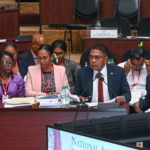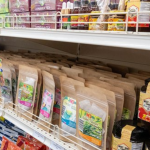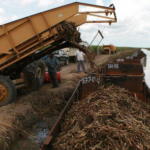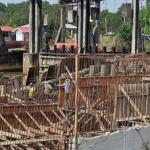In its official name, the Cooperative Republic of Guyana expresses its commitment to being a reliable partner and working together with other nations.
Our small country in northern South America has strong cultural and historical ties to the Caribbean region and has attracted global attention in recent years for its exceptional economic growth.
Our country’s geographical position is strategic for realizing our cooperative approach and becoming a link for cooperation in our hemisphere.
While the starting point for growth has been the offshore oil and gas fields that began to be exploited in 2019, Guyana is now also undergoing a revolution in agriculture, which is making it more productive, diversified, competitive and resilient; and also playing an important role in promoting the regional policies and actions for accelerating the sustainable development of the agricultural sector in the CARICOM member countries.
The country is thus ensuring food security for its population and consolidating its position as an important player in the Caribbean’s food basket, thanks to increased public and private investment and the arrival of foreign capital.
For this reason, and as a natural part of this path toward modernizing its productive sector, the country has nominated Muhammad Ibrahim, a candidate with outstanding leadership qualities and experience in agricultural systems throughout the Hemisphere, for the position of Director General of the Inter-American Institute for Cooperation on Agriculture (IICA), an organization that belongs to all the governments of the Americas and whose mission is to contribute to the development of agriculture and the well-being of rural communities.
Guyana’s economic expansion has exceeded 40% per year in the years following 2020, and per capita gross domestic product (GDP) rose from less than $6,500 per year in 2019 to more than $18,000 in 2023. This expansion will continue this year, opening up great opportunities for all sectors of the economy.
In terms of agriculture specifically, the achievements are evidenced by the publication of a recent study by the universities of Göttingen (Germany) and Edinburgh (United Kingdom), which revealed that Guyana is the only country in the world that is completely self-sufficient in food.
This data reinforces the country’s capacity in a context of conflicts that have placed food security at the top of the global agenda.
The reason for these successes is that Guyana is directing resources to different sectors of its economy, with agriculture and food security being one of the main ones, along with education, housing, and infrastructure.
During 2023 and 2024, 8% of the national budget was allocated to the agricultural sector, as a result of a political decision taken after the Covid-19 pandemic showed that food security can be at risk even in developed countries.
There are a number of strategic projects aimed at modernizing the sector and changing the perception that agriculture is a sector for those without formal education, demonstrating instead that it is associated with knowledge.
This has led to the strengthening of technology in traditional crops, the introduction of higher-value crops, and the processing of primary products; and strengthening the institutional capacity to work on plant and animal health and food safety as a strategy to secure sustainable production and respond to consumer’s needs.
In 2024, Guyana achieved, for the first time, a production of over 700,000 tons of rice, a key crop for domestic consumption and export. The country also has the largest hydroponic farm in the region.
Guyana is also the first country in the Caribbean to launch insurance to compensate producers who lose their crops or animals due to natural disasters, after floods destroyed almost 90% of production in 2020.
For all these reasons, Guyana wants to be at the forefront of IICA with one of its most brilliant leaders in the field of food.
Muhammad Ibrahim, candidate from Guyana and the Caribbean Community (CARICOM) for the position of Director General of IICA, has invaluable technical and political experience and leadership skills forged over nearly 40 years of work in agricultural productivity and resilience.
His work has promoted the role of science, innovation, and technology in strengthening farmers, in dialogue with governments, the private sector, and financing institutions.
It is this experience that our country, honoring his name, wants to bring to all of the Americas.





